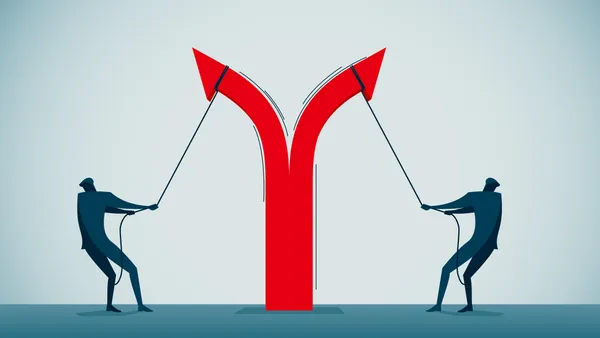IT HAS been 33 years since the headline “Ford to City: DROP DEAD” was on the front page of the Daily News, but it has not been forgotten by New Yorkers. At the time, New York was on the brink of bankruptcy. The city defaulted on some bonds and owed $5 billion. One in five of all city jobs (including police ones) were eventually eliminated. The city closed several firehouses. But Gerald Ford was unhelpful.
Now, because of Wall Street’s ongoing meltdown, another fiscal crisis appears imminent, this time at state level. Costs are rising and revenues are falling fast. In June 2007 the 16 banks that pay the most taxes on their profits remitted $173m to the state treasury. Last month this dropped to $5m, a 97% decrease. This is a frightening fall given how much the state’s coffers rely on Wall Street taxes: 20% of all state revenues come from financial companies.
David Paterson, New York’s governor, delivered an unprecedented special address on July 29th on his state’s deteriorating fiscal condition. Pointing out that the economy’s problems are severe and are likely to get worse, he recalled the state legislature for an emergency economic session. He plans to cut state agencies’ spending and to trim the state’s workforce. He is pushing for a cash injection, via new public-private partnerships for state assets.
Mr Paterson’s new budget plan places this year’s state deficit at $6.4 billion, up from an already astronomical $5 billion. In less than 90 days, the projected deficit over the next three years has jumped 22% to $26.2 billion. But Mr Paterson, who promises the government will do more with less, still has to convince the state legislature, which is famously dysfunctional and much too generous with state money.
New York City, however, is in better shape than the state is. It is “as prepared for this downturn as we possibly could be”, according to Mayor Michael Bloomberg, thanks to careful planning, including the creation of a new trust fund to cover health benefits to retirees. Felix Rohatyn, a banker who helped navigate New York out of its 1970s crisis, thinks that the city should be able to deal with its current problems because of measures put in place then, like the Financial Control Board created to oversee budgets.
But even so the city, which is also heavily reliant on Wall Street for revenue, is facing budget shortfalls. It, too, has seen revenues fall: in its case by a billion dollars since May. The 2009 budget is supposedly balanced, but the city is facing deficits in years to come. Nicole Gelinas, of the Manhattan Institute, says even a partial defined contribution plan for new city workers would help offset the city’s crippling health costs. A 7% property tax cut could be rescinded to offset some of the angst.
But more stress is likely. The city thinks Wall Street bonuses will decline by more than 20%. Financial firms posted $22.8 billion in losses in the first quarter and the big investment banks are laying off thousands of people. Wall Street lost 4,300 jobs during the month of June alone.












